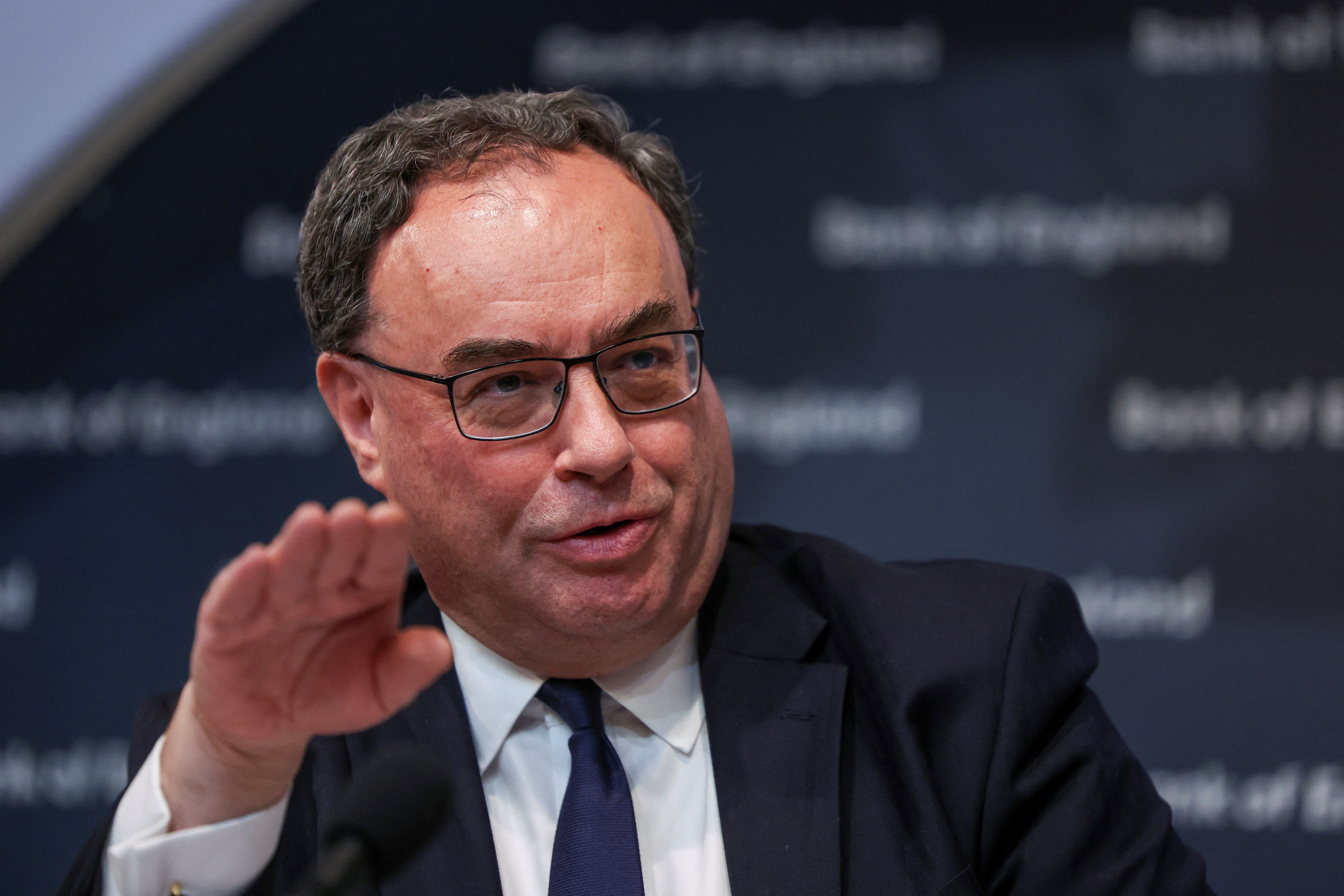There is only one cure for our runaway inflation: we need to trigger a recession
The Bank of England has failed to get a grip on spiralling prices – only drastic measures can now set the economy on the right course, writes Chris Blackhurst


The moment is fast approaching when Andrew Bailey has to get a grip. Or if he can’t or won’t, then someone else has to take charge as Bank of England governor.
For too long, the Bank has been lackadaisical in the fight against inflation. It was too slow to put up rates; then, when it did, the rises were too small and so had little effect. Now it needs to go further, and set them so high as to force the UK into recession.
Nothing else will do; no half-way house, no compromise. A bit of tinkering here and there is not the solution. This is an embedded enemy, and it must be eradicated. Like Japanese knotweed, drastic measures are required. In the case of the weed, that means digging it all out and then going further still. The look of the garden does not matter – it can be restored later. Likewise, economically, this is not a time for worrying about appearances.
Something similar is needed where inflation is concerned. Manufacturers, retailers: they’ve all displayed a resolute refusal to lower their prices. Some of those increases were justified originally, as the cost of raw materials and energy rose across the globe. But not all and not any more. Virtually all the inputs that pushed up prices have disappeared.
Many of the rises were, and are, down to sheer greed. The giant corporations took advantage of the doom and gloom backdrop to jack up their prices well beyond actual inflation.
Now, in the face of political and media pressure, having been publicly charged with pursuing “greedflation”, some are bringing them down. But their approach is mealy-mouthed, as if they’re somehow doing us all a favour.
Indeed, they see it as a promotional tool, not as a necessity. It’s also piecemeal – there is no concerted, across-the-board effort to bring prices down. It’s also not going far enough – the grocery cuts announced so far do not begin to come close to returning prices to anything like their former levels.
The downside to recession is that it destroys economic growth. Productivity will suffer; jobs will be lost.
If there was evidence of a vibrant, surging economy that might be a reason to pause. But there isn’t – the economy has been flat for a while now, moving sideways, not downwards and definitely not upwards.
As for harming productivity, there is little prospect of that – the “p” word, as it is known in Whitehall, has haunted successive governments, stubbornly refusing to budge, despite numerous initiatives.
There is a case for Rishi Sunak to stop “listening”, as he always likes to say, and to start acting. He’s made it one of his key pledges to halve inflation by the end of the year.
When he made that promise back in January it seemed reasonable enough. Most economic forecasters were predicting the UK would plunge into recession during the first half of 2023 and prices would fall.
That has not happened. Interest rates, the main weapon against inflation, have duly risen. But not by enough. Meanwhile, prices have stayed high. The shock was in May, when the consumer prices index (CPI) stayed the same at 8.7 per cent when most economists were forecasting a fall.
If Sunak is to avoid the humiliation of missing his target, with next year an election year, he must act. That means putting in place steps to assist mortgage holders caught by rising rates. It means naming and shaming those big businesses that selfishly put their own profits before the collective good. He could threaten a price cap – something that goes against his Tory instincts – but if he does not at least even talk about imposing one, Labour will.
We have an independent Bank of England, but the governor must have his spine stiffened. The economy requires an urgent reset and that means a sharp correction, which is another way of saying recession. There is no alternative.






Join our commenting forum
Join thought-provoking conversations, follow other Independent readers and see their replies
Comments